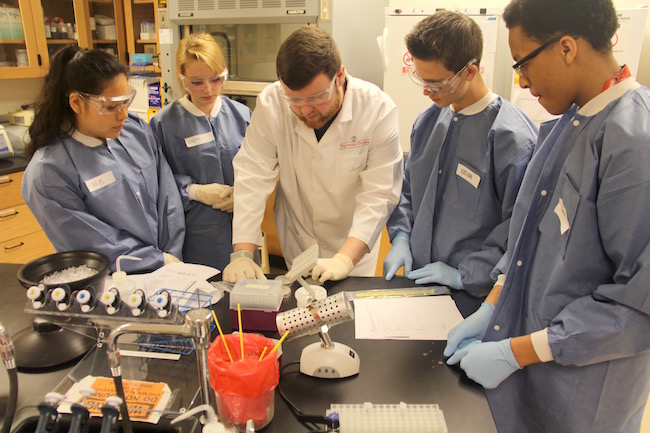Test anxiety is one of the most common forms of stress school-aged children face. Even when you know the material on a test, stress can cause changes in the body and brain that make it hard to think clearly.
To tackle this problem, University of Georgia Cooperative Extension experts recommend following the steps below when preparing for your child’s next test.
- Step 1: Allow plenty of time to study. Cramming and staying up all night before a test are sure tickets to disaster. Waiting until the last minute to study increases stress hormones and can actually decrease your memory. Studying boosts confidence and also lowers your risk of panicking on test day. Preparing a written study schedule for tests can help keep you and your child from waiting until the last minute. Remember to allow plenty of time for fun, breaks and rest.
- Step 2: Some children study better with a “study buddy” or with another person who can help get them motivated. Choose a study partner who can help with the subjects that will be covered on the test. Studying with another person can help relieve some anxiety and make the task a team effort.
- Step 3: Make sure you have everything you need to study for the test. If the textbooks or class notes are unclear, have the child ask the teacher for other suggestions on how to better understand the material. Library books, websites or magazine articles might be helpful, too.
- Step 4: Don’t let your child drink too many caffeinated or soda drinks on test day. Even though they can perk you up temporarily, the sugar and caffeine will eventually cause you to “crash.” They can also cause you to think less clearly. Junk foods that are full of sugar and carbohydrates can have the same effect. Instead, choose snacks and drinks that are healthy brain foods. Make sure kids have these on hand for studying and testing time.
- Step 5: Find a quick relaxation technique that helps your child calm down. Most test stress occurs during the first few minutes of the test. If this happens, spend a few minutes relaxing before tackling the test. Some relaxation methods are breathing, stretching, yoga, exercise, imagery, meditation, walking or squeezing a stress ball. It is okay to combine methods to suit your child’s preference.
- Step 6: Reward your children for all their hard work. If they followed all these steps, they deserve a reward, no matter how they performed on the test.
- Step 8: Relax! Your child is ready for the test…and is now a lot less stressed.
For more information about the Georgia 4-H Health Rocks “Less Stress on the Test” program, contact the UGA Extension Office in your county.






